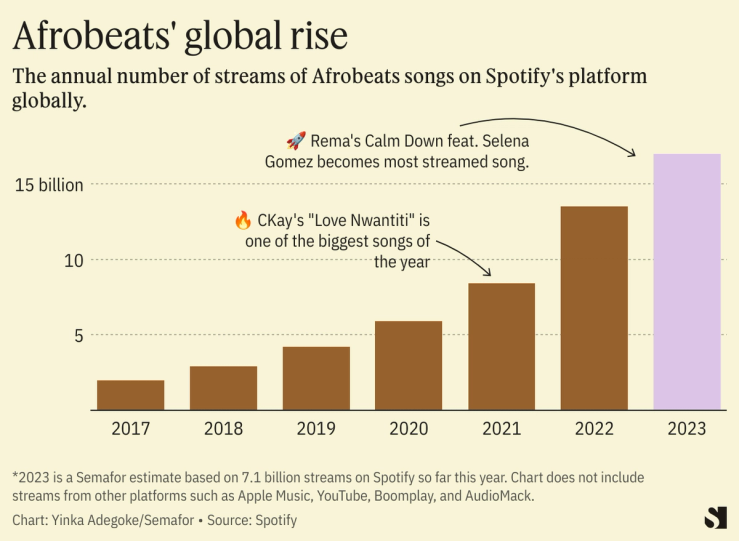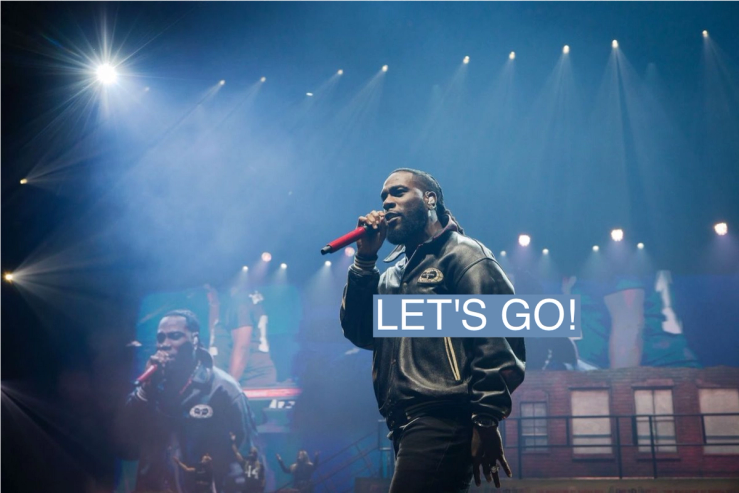The Scene
When the Nigerian star Burna Boy steps on the Grammys stage with rapper 21 Savage and R&B singer Brandy at Los Angeles’ Crypto.com arena later today, it will be historic for being the first ever live performance by an Afrobeats artist at the awards ceremony. It will also be a watershed moment for African music on the industry’s biggest stage as it will be the first Grammys with a category for Best African Music Performance.
The show, which will be hosted by South African comedian Trevor Noah for the fourth time, will have a distinctly African feel.
In this article:
Know More
There are five nominees for the inaugural Best African Music Performance including Burna Boy’s City Boys, Asake/Olamide’s Amapiano, Ayra Starr’s Rush, Davido/Musa Keys’ Unavailable (all from Nigeria), and South African singer Tyla’s Water.
African artists have won Grammys in the past, including the first ever by Miriam Makeba in 1966 alongside Harry Belafonte for Best Folk Recording. More recently, African winners including Angélique Kidjo (2008) and Youssou N’Dour (2005) have tended to be in the “World Music” category or “Global Music” which Burna Boy won in 2021.
Yinka’s view
The last decade and a half has been an incredible period of international growth for African popular music, led by West Africa’s Afrobeats and South Africa’s Amapiano. But the buzz I’ve been picking up from people in the music business who are all in Los Angeles right now for Grammys Week is that this is a special moment for African popular music taking its rightful place on the global stage.
This didn’t happen by chance. Lots of artists, managers, agents, label executives, and others have been working on what veteran Nigerian-American music executive Efe Ogbeni likes to frame as “Africa to the world.” Ogbeni, who helped chart the early international careers of acts including Davido and Tiwa Savage, says the new category and live performance will help consolidate the much higher expectations for a continent whose DNA makes up much of modern popular music. “These events are great opportunities for discovery, a lot more people are going to discover Afrobeats and African music after this,” he says.

For Timi Adeyeba, co-founder of Amplify Africa, a Los Angeles-based event organizer, this has been a long time coming. “When we started doing events in 2016, we did it out of the need to create a lane and opportunity for Africans in the diaspora to enjoy their culture because no one was really paying attention to us,” says Adeyeba.
Now, he says, that’s changed significantly of course with the rise and rise, in particular of Afrobeats artists like the nominated super stars. The genre hasn’t just filled dance floors globally, it’s also raised awareness and curiosity about an African continent which too many people around the world had typically only seen through a geopolitical or macroeconomic lens of war and poverty.
Music is just one part of the wider conversation about the influence of African youth culture that goes beyond borders. We can thank digital distribution platforms like YouTube and Spotify for the ease with which that happens today but, ultimately, it’s still all about great music.


